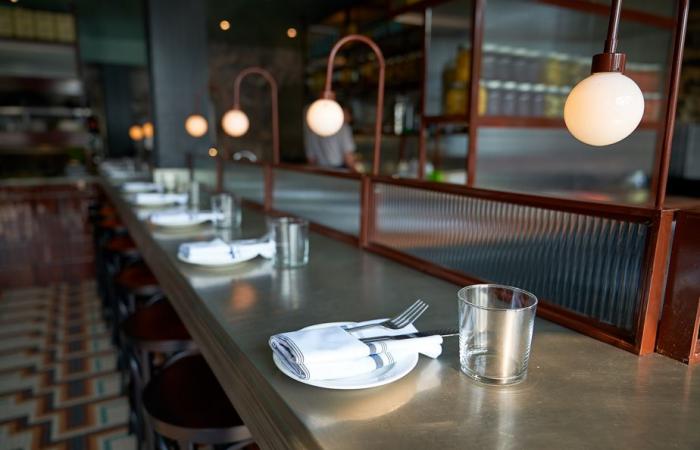The year 2025 could be marked by an increase in the price of Caesar salad, poke bowls or other vegetable stir-fries on restaurant menus. Canada’s possible response to American customs tariffs risks inflating the bill in the dining room if several food products are targeted, restaurateurs and the associations that represent them fear.
Published at 6:00 a.m.
“Honestly, I have a lot of concerns about this. If the United States imposes tariffs on Canada, it is not good for the economy. This will affect traffic in our restaurants. And on the other hand, possible tariffs against the United States, on vegetables, oranges, ketchup, that will affect our costs,” explains Peter Mammas, president of Foodtastic, a group which owns several brands such as La Belle & La Boeuf, Rôtisseries Au Coq, Carlos & Pepe’s.
Backtracking. In November, Donald Trump threatened to impose 25% tariffs on all goods entering the United States from Canada and Mexico when he officially takes office at the White House on January 20.
As this fateful date approaches, Ottawa is preparing an offensive aimed at imposing tariffs on American products entering this side of the border, revealed CBC and the Globe and MailTHURSDAY. According to these two media, orange juice, plastics, steel and porcelain parts, in particular, would be targeted.
The exhaustive list is not yet known, but restaurateurs are crossing their fingers that fruits and vegetables, including tomatoes as well as lettuce, household cleaning and packaging products and even California wines are not there, indicated to The Press Maximilien Roy, vice-president of Restaurants Canada, who adds that these products come largely from the United States.
While he described the year 2024 as a real “crossing the desert” for his industry, in particular due to the reimbursement of the emergency aid granted by Ottawa during the pandemic to restaurateurs, now the customs tariffs on both sides other areas of the border bring their share of uncertainties. “If there is a tariff war, we expect a response from the Government of Canada. We are in discussions with the Minister of Finance Dominic LeBlanc,” mentions Mr. Roy, whose association has 35,000 members.
“We are trying to prepare”
This concern is also shared by the Association Restauration Québec (ARQ). “If we enter a context of recession [en raison des tarifs douaniers américains]people will not come to the restaurant. Our fear is that the tariffs will push the Canadian economy into decline,” maintains its vice-president of public and government affairs, Martin Vézina.
Reciprocity will perhaps lead to an increase in food costs that will have to be managed. Where it will hurt is with fruits and vegetables that come from the United States.
Martin Vézina, vice-president of public and government affairs of the Association Restauration Québec
“Even our rolls are made from potatoes,” illustrates Peter Mammas. And a significant quantity of potatoes used in the kitchens of restaurants here come from our neighbors to the South, just like romaine lettuce.
Although Quebec produces lettuce in greenhouses, the quantity is not sufficient to supply all restaurateurs all year round, confirms Anthony Fantin, president and CEO of Vegpro International, a market gardening company in Sherrington which has facilities in Quebec, British Columbia and Florida. In particular, it produces several varieties of lettuce under the Attitude Fraîche brand.
“We are in production in Canada, in Quebec and in British Columbia, approximately 20 to 22 weeks per year,” emphasizes Mr. Fantin. The other 32 weeks, we are in production on our farms in Florida. »
“If the Canadian government reciprocates, it will increase the price for the consumer,” he adds. We’re trying to prepare. We do all possible scenarios. We’ll wait and see what happens. »
In 2018, a similar scenario occurred. President Trump had imposed 10% tariffs on steel and aluminum. Canada then responded by taxing more certain products from the United States such as fruits and vegetables, pizza, mustard, mayonnaise and chocolate.






